Bird injuries at Mile Square Park baffle officials, exhaust self-appointed advocates
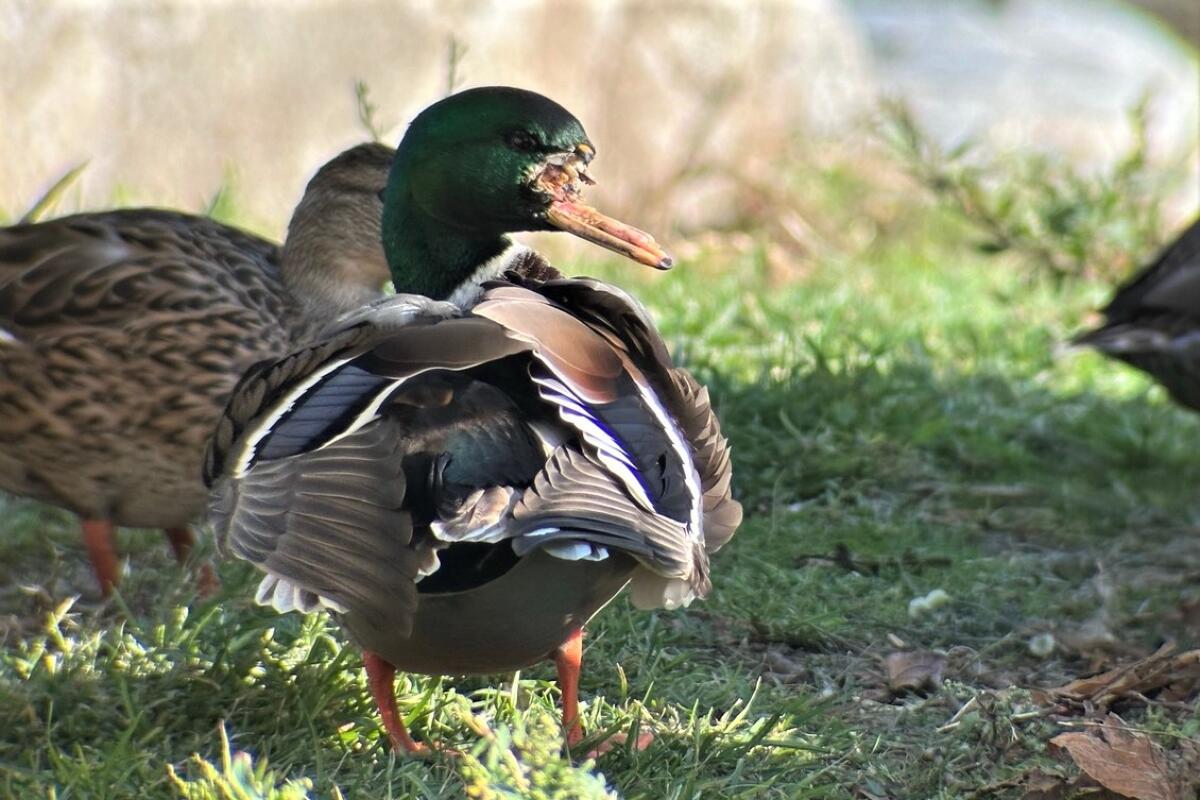
- Share via
Mile Square Regional Park at dusk is a daily destination for Robert Di Massa, a hobbyist wildlife photographer whose affinity for the numerous bird species there has inspired more than 40,000 photos and video scenes in recent months.
But among the snaps of spry kingfishers hunting hapless quarry from atop the bulbous heads of swan boats, or arcs of ibises mid-flight and blue herons hunkered down in the treetops, several photos document a different side of life at the park.
Image after image of birds, their feet entangled in fishing line tight enough to cut off circulation, anger the bird lover in Di Massa. And then there are the waterfowl.
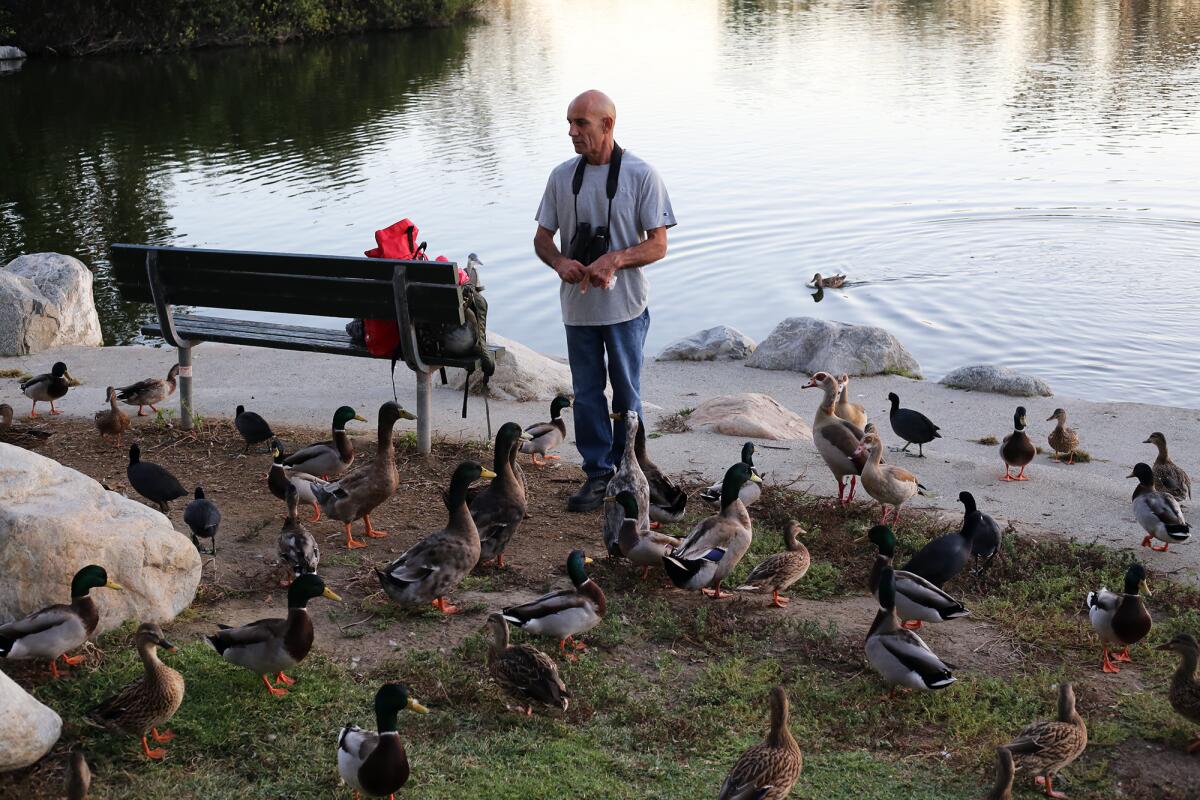
Over the past four months, the Fountain Valley resident has been observing mostly mallards with disturbing signs of mutilation — their bills appear broken or completely severed, in some cases causing their tongues to loll out of their mouths at a garish angle.
“The first day I was there, I noticed an injured goose missing half of its beak,” Di Massa, 55, recalled. “Over a period of time, I started witnessing more and more injured birds. The ones with broken beaks seemed to be in clusters.”
He initially thought the broken bills might be injuries sustained from occasional crash landings, as ducks aren’t known for their agility. Some at the park suggested snapping turtles living in the park’s main lake might be the culprit, although none have ever been seen.
Di Massa fears the damage is human in nature.
“When I lay it all out and look at the whole picture, I see it makes sense that some people are capturing them and injuring them,” he said.
Rescue fatigue
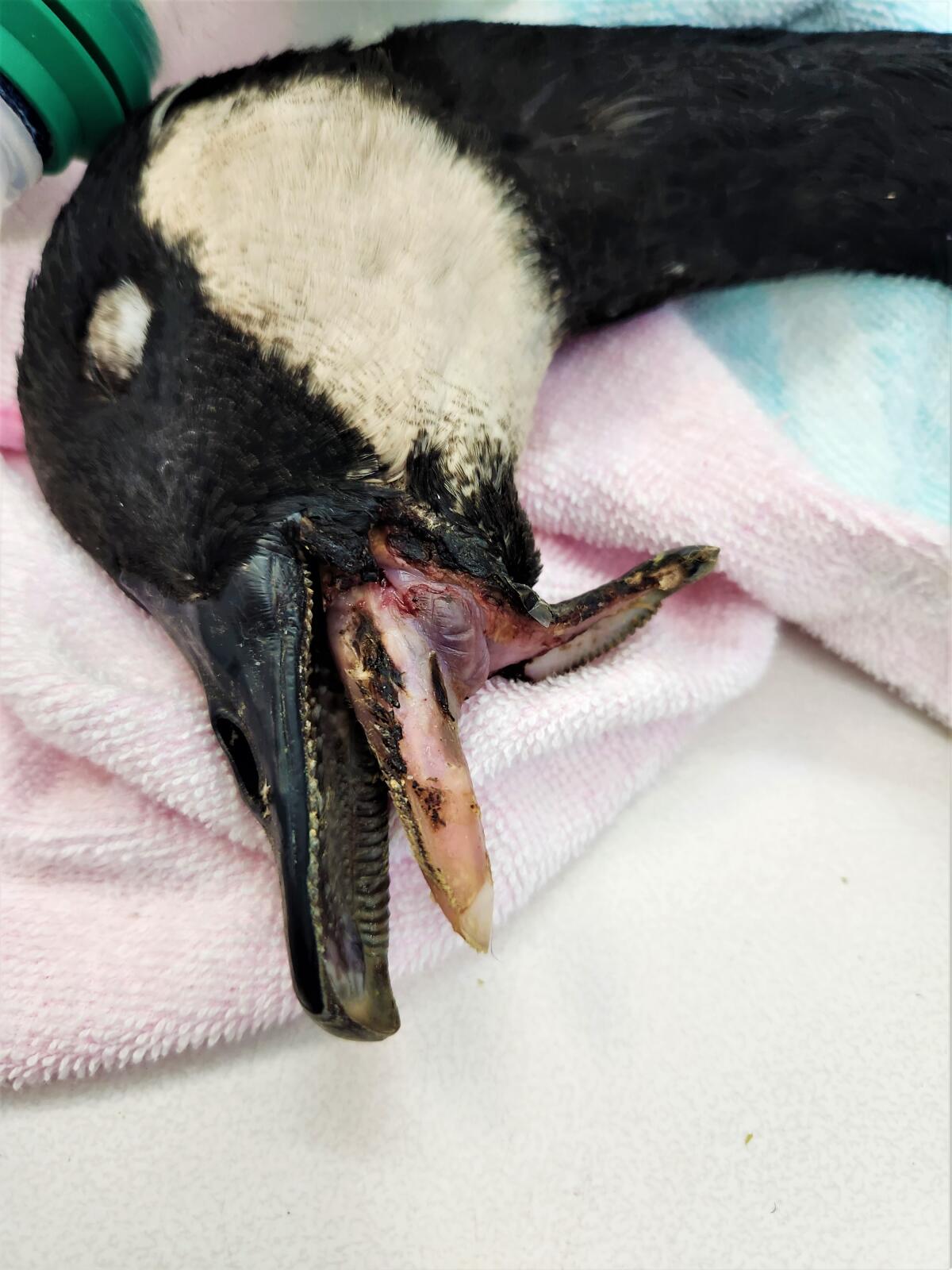
Di Massa is not the only one who thinks there’s something unsettling afoot at Mile Square. The phenomenon has attracted the attention of one Westminster couple, whose daily trips to the 607-acre park have become almost compulsory rescue missions.
Anna and Marshal, who asked that their surnames not be released to protect their privacy, come each day to the northeast corner of the park near the intersection of Edinger Avenue and Euclid Street.
They walk the perimeter of the main fishing lake with a skimmer net and two pairs of watchful eyes. They retrieve balls of tangled fishing line, lures and plastic trash from the shoreline and give the hundreds of waterfowl a quick look for signs of trouble. In their car they keep a carrier in case transport is necessary.
“I’d prefer not to do it, but the park rangers don’t really make the rounds,” Anna said of her efforts, adding that signs indicating how the litter can harm birds would go a long way toward educating the public.
Since July, they’ve noticed several damaging entanglements, lines cutting off the circulation of a goose’s foot or, in some cases, seeing both legs bound together in discarded filament. Like Di Massa, they have also seen maybe a dozen ducks with severed bills.
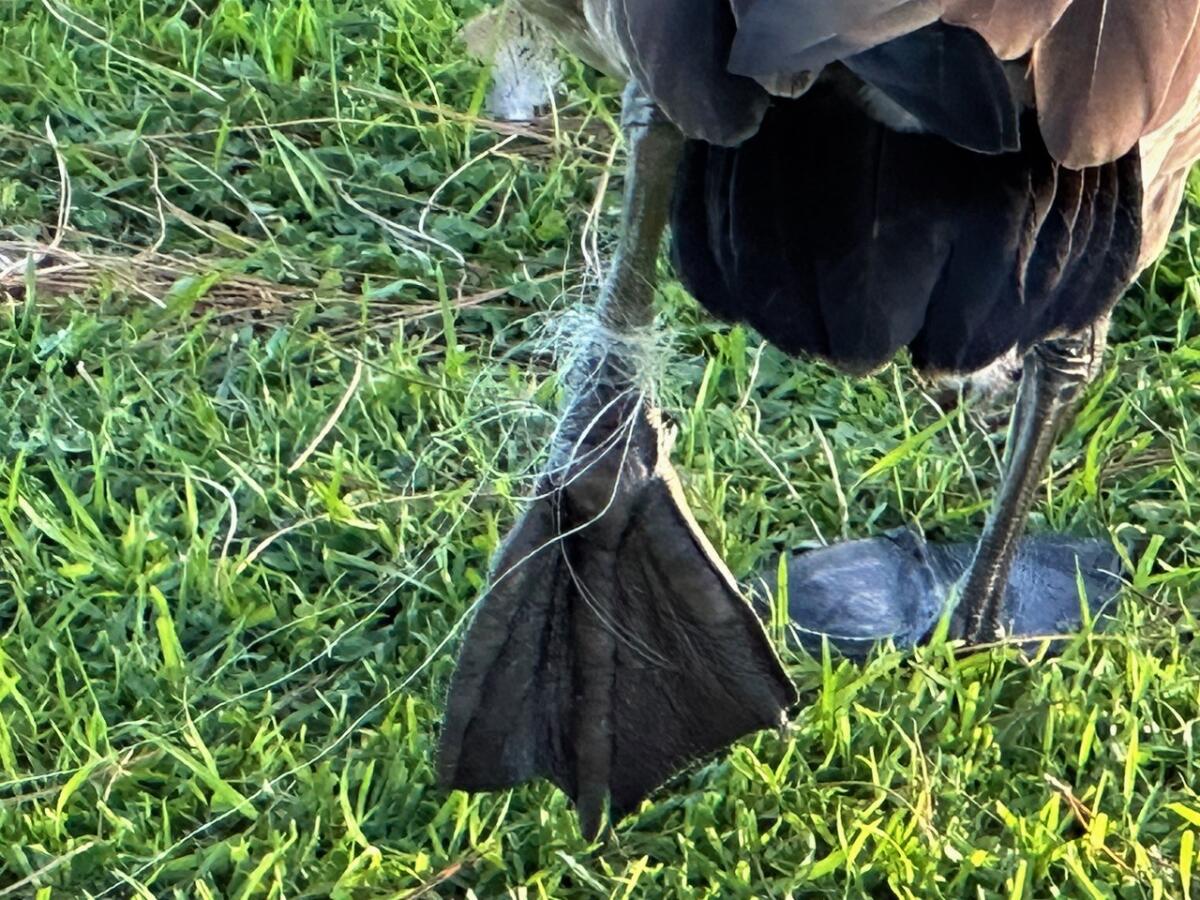
“They’d sometimes have missing beaks. Sometimes they’re missing the whole beak, sometimes it’s just the top,” Marshal said. “Their faces are just cut to ribbons — it’s very grotesque”
The couple used to call for park rangers when they saw the injured animals. But staff rarely came out, or showed up after an hour or more with just a towel. So, they began capturing and transporting ducks to the Wetlands & Wildlife Care Center in Huntington Beach.
“We used to be so sad about it at first,” Marshal said of the rescues. “Now, we’ve gotten to the point where we’re desensitized.”
“We’re not crying every time anymore,” Anna agreed.
Under investigation
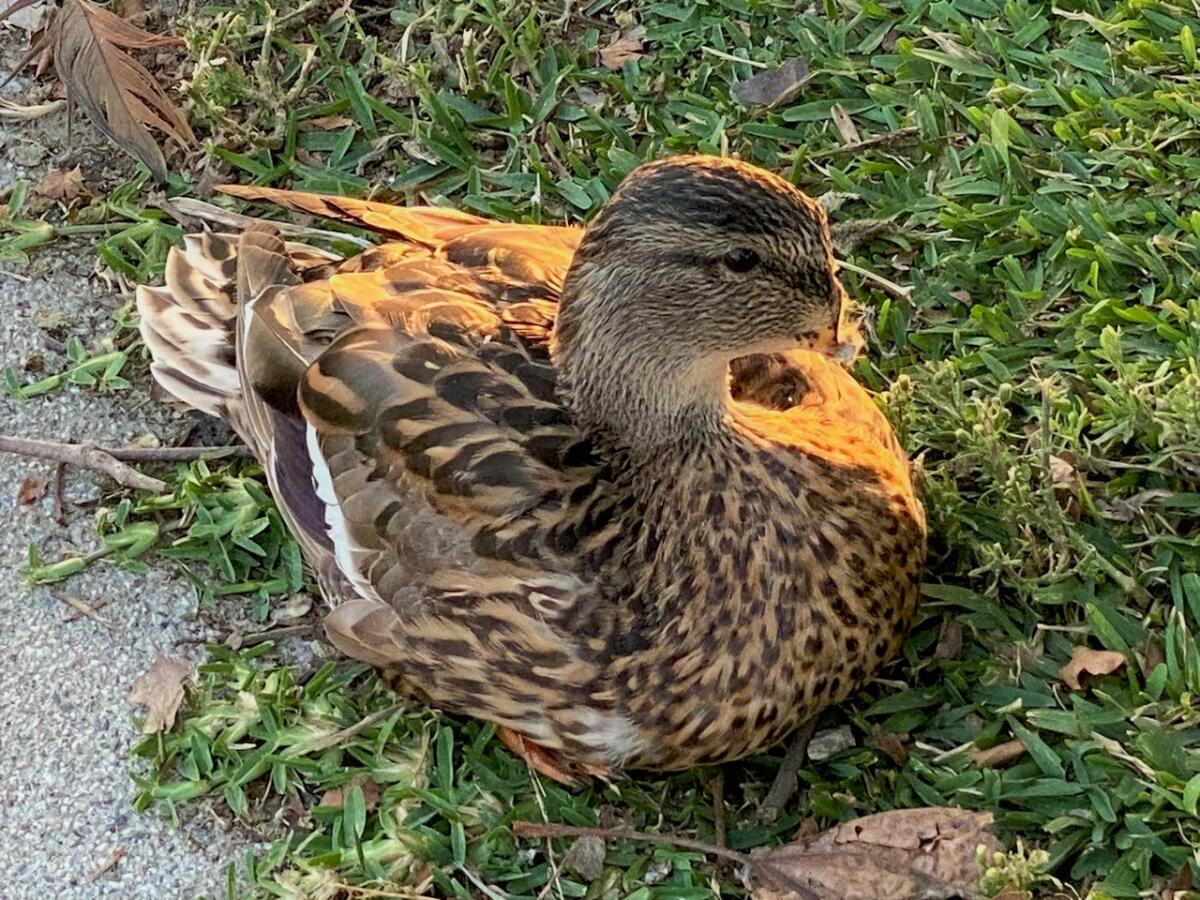
Debbie McGuire, executive director of the nonprofit rescue center, said incidents of ducks with severed bills began last year, baffling wildlife officials, then stopped for a while before resuming earlier this year.
“It started up again this spring or early summer and has been nonstop,” she said. “We’ve been sending in the ducks and geese to the lab for necropsies. They say it may be snapping turtles, but I think we’d be seeing all species suffering from that, not just mallards.”
Unlike a fingernail, a duck’s bill is filled with nerves that make injuries painful. Often, the cuts observed have ruptured birds’ sinus cavities or rendered them incapable of eating, a fate worse than death, according to McGuire.
“They should kill them,” she said. “It would be kinder than leaving them to die.”
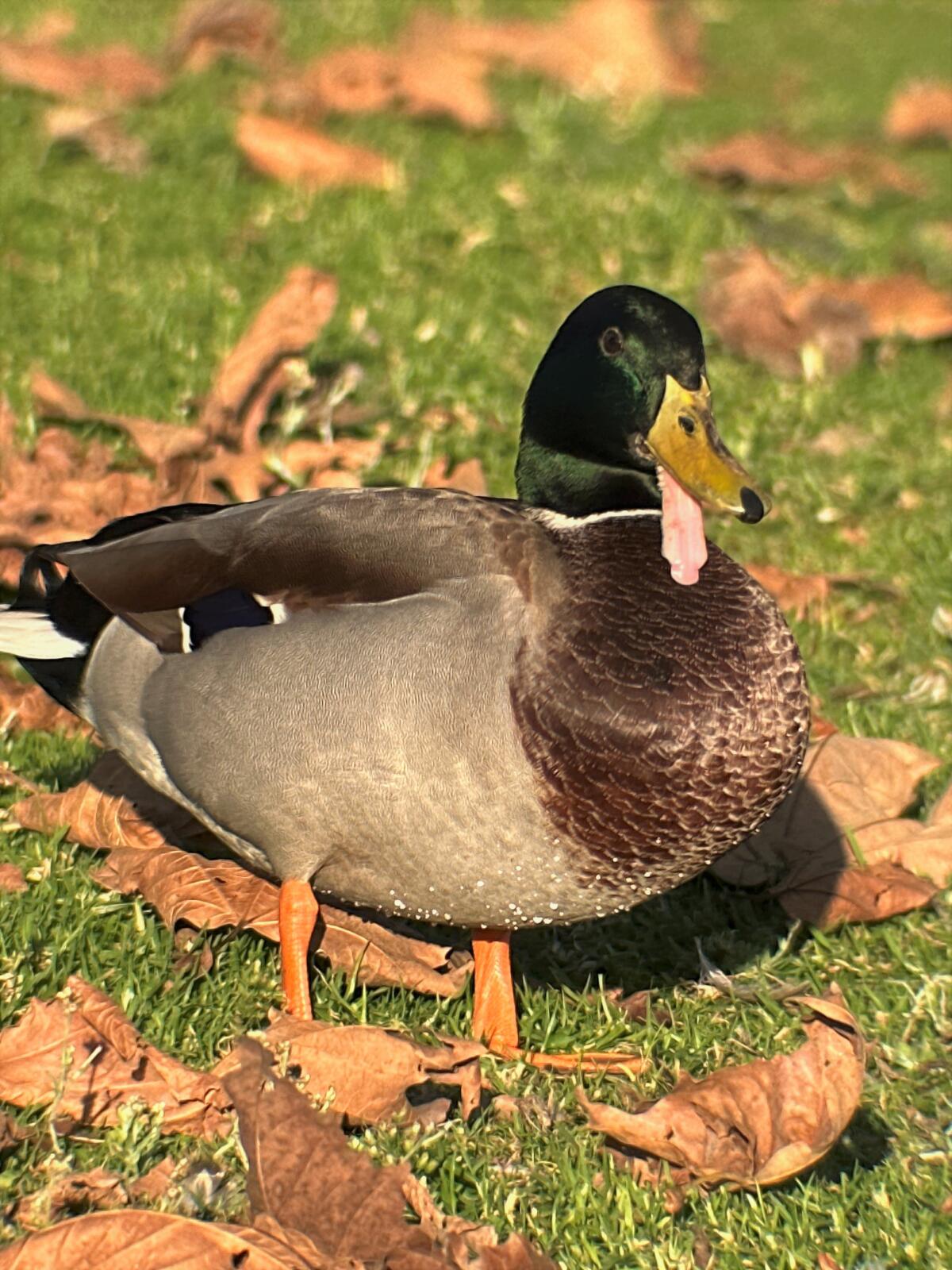
Mile Square Regional Park’s acreage falls under the jurisdiction of Orange County Community Resources, which oversees O.C. Parks and the county’s Animal Care division.
Community Resources spokeswoman Alexa Pratt confirmed Wednesday one incident of a male mallard duck missing the top of its bill was reported on Oct. 3 to animal care officers by a park visitor.
“Officers responded and brought the duck back to the O.C. Animal Care Clinic. But, unfortunately, due to the extent of the injury, it was euthanized,” she said.
Even though ducks and other migratory animals are wild and not technically considered property of the county, laws prohibiting their harm or endangerment exist.
One county ordinance reads: “No person shall hunt, kill, wound, feed, touch, tease, frighten, or intentionally disturb wildlife in any park, beach or recreational area, except persons in the performance of their official duties.”
Pratt said Mile Square park rangers have been working with the California Department of Fish and Wildlife to investigate potentially illegal incidents of animal harm at the park.
Patrick Foy, a captain for CDFW’s Law Enforcement Division, confirmed Thursday an investigation was ongoing and said he did not yet have anything substantive to share on the matter.
Constant watch
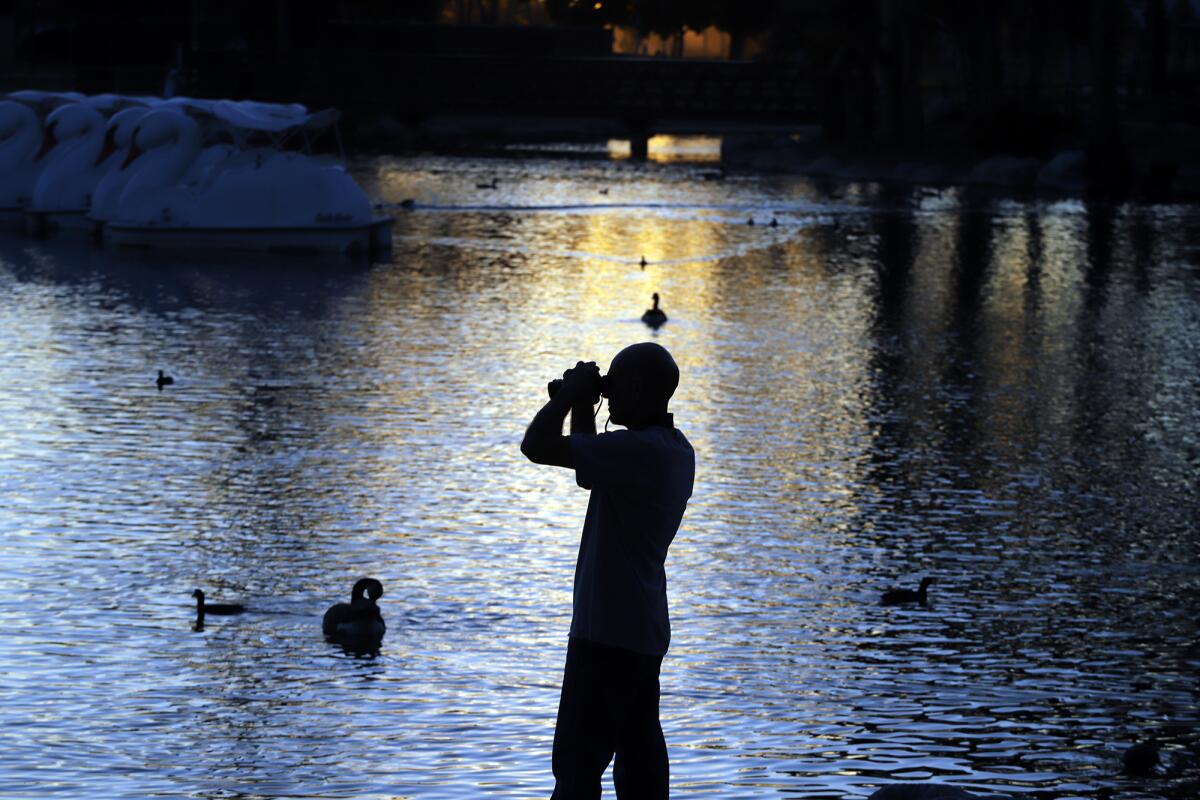
While officers look into the activities, Anna and Marshal say they will continue their daily treks to Fountain Valley, net in hand.
They’ve tried to recruit other park goers into helping them pick up littered fishing lines or keep an eye out for injured birds but don’t get much more than sympathy in response. So, like Di Massa, they maintain their daily vigil, fearing what will happen if they stop.
“Doing this has taken a toll on my physical and mental health,” Anna wrote in an email on the subject, describing 10-hour work days capped off by two hours of park duty. “I’m just drained.”
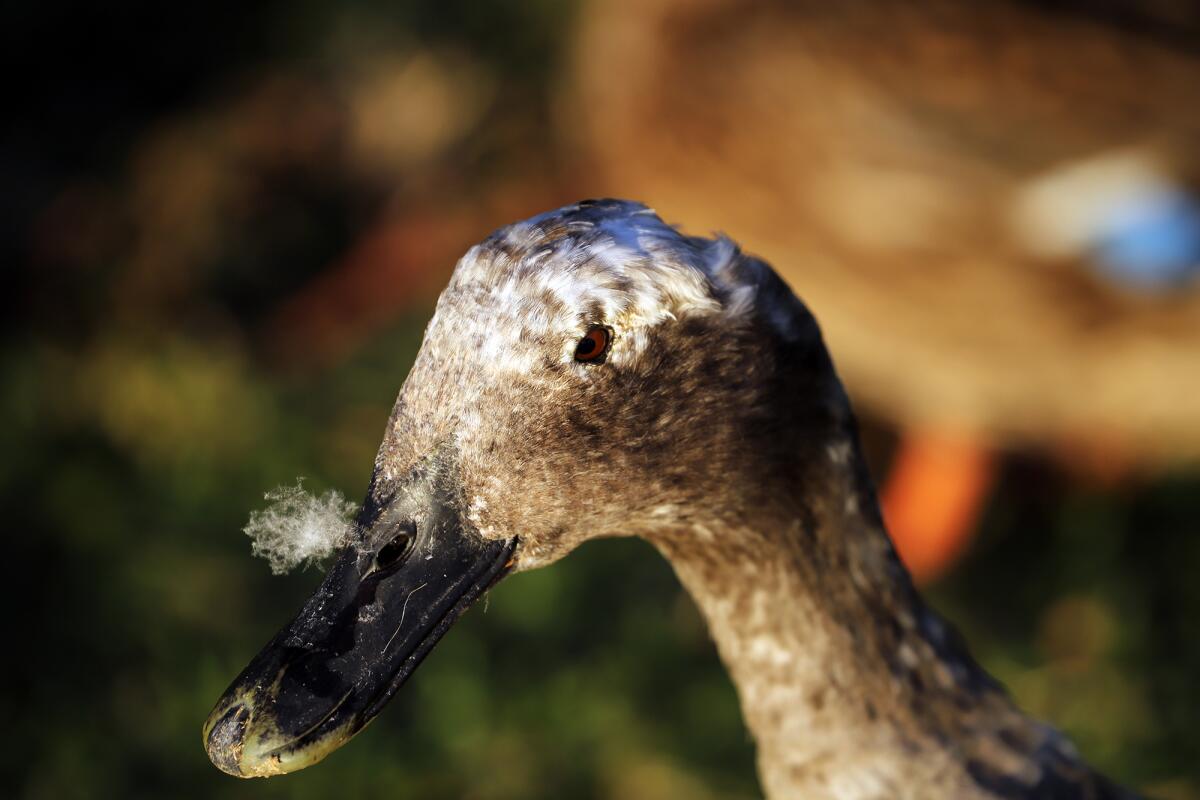
Di Massa agrees the park’s current enforcement efforts seem to be coming up short.
“In four long months I have not seen anyone walking or driving around the lake or near it,” he said. “If someone is intentionally injuring these wildlife animals, no one would ever find them because it’s a free-for-all.
“How can we do better as a community to protect our wildlife?”
Anyone who discovers an injured animal at Mile Square Regional Park or any other county property is asked to call O.C. Animal Care’s 24-hour line at (714) 935-6848.
All the latest on Orange County from Orange County.
Get our free TimesOC newsletter.
You may occasionally receive promotional content from the Daily Pilot.







